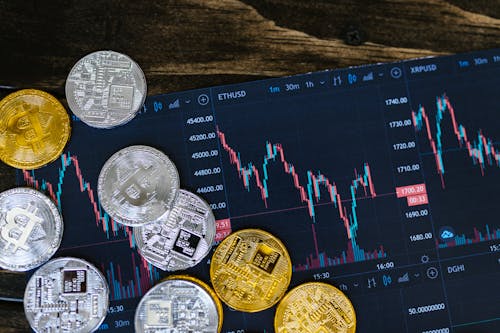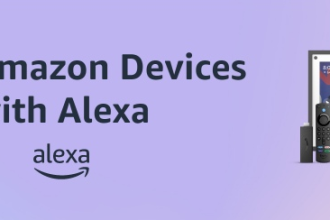A Technology with Far-Reaching Potential
Blockchain, often associated with cryptocurrencies like Bitcoin and Ethereum, has evolved into a versatile technology with applications far beyond the realm of digital currency. Originally developed as the underlying framework for cryptocurrency transactions, blockchain’s unique ability to securely record and verify transactions has opened the door to numerous possibilities in various industries. Its decentralized nature, transparency, and immutability make it an appealing choice for sectors ranging from finance to healthcare, supply chain management, and beyond.
The core concept behind blockchain is simple yet powerful: it is a distributed ledger technology (DLT) that enables secure, transparent, and immutable record-keeping. Once information is added to a blockchain, it cannot be altered, ensuring a high level of trust and accountability. With the potential to revolutionize the way data is stored and shared, blockchain is poised to have a significant impact on industries across the globe.

Blockchain in Supply Chain Management
One of the most promising applications of blockchain is in supply chain management. In traditional supply chains, the flow of goods and information is often fragmented, with multiple intermediaries involved in each step. This can lead to inefficiencies, delays, and a lack of transparency. Blockchain’s ability to provide a single, transparent ledger accessible to all parties in the supply chain solves many of these issues.
By using blockchain to track the movement of goods from production to delivery, businesses can ensure greater transparency and accountability. Each step of the process is recorded in a decentralized, immutable ledger, allowing all participants to verify the origin, condition, and ownership of goods. This level of transparency is especially valuable in industries such as food and pharmaceuticals, where safety and quality assurance are critical. Consumers can also use blockchain-based systems to trace the products they buy, ensuring that they are ethically sourced and meet quality standards.
Blockchain in Healthcare
The healthcare industry has long struggled with inefficiencies in managing patient data and ensuring secure information sharing between providers. Blockchain technology offers a solution to these challenges by creating a decentralized, secure, and immutable record of patient data. Medical records stored on a blockchain would not only be more secure but also easily accessible to authorized parties, eliminating the need for outdated, paper-based systems.
Blockchain can also streamline the process of medical supply chain management, ensuring that pharmaceuticals and medical equipment are sourced, stored, and distributed safely and efficiently. For example, counterfeit drugs are a significant problem worldwide, and blockchain can provide an effective way to authenticate medications, tracking them from manufacturer to pharmacy. By ensuring the integrity of these products, blockchain can enhance patient safety and reduce the risk of fraud.
Blockchain in Voting Systems
The potential for blockchain to enhance the security and transparency of voting systems is another area garnering significant attention. In traditional voting systems, there are concerns about voter fraud, tampering, and miscounts. Blockchain offers a way to secure the entire voting process by providing a transparent, immutable record of votes cast. Each vote can be treated as a transaction on the blockchain, ensuring that it is recorded securely and cannot be altered once it is cast.
Blockchain-based voting systems would offer several advantages over current methods. Voter anonymity could be preserved while ensuring the integrity of the election results. Blockchain could also make voting more accessible, allowing people to cast their ballots remotely through secure, decentralized platforms. While challenges remain, such as the need for widespread adoption and ensuring cybersecurity, blockchain holds great promise for modernizing the voting process.
Blockchain in Intellectual Property Protection
Intellectual property (IP) is one of the most valuable assets in the modern economy, but it is also one of the most difficult to protect. Copyright infringement, counterfeiting, and unauthorized use of intellectual property are major issues for creators and businesses alike. Blockchain can help address these challenges by providing a secure, immutable record of ownership for digital assets.
Using blockchain, creators can register their work—whether it’s music, art, software, or other intellectual property—on a public ledger, which serves as proof of ownership. This digital record is timestamped, ensuring that the creator’s rights are protected and easily verifiable. In the event of a dispute over ownership, the blockchain record can be used to resolve the issue. Furthermore, blockchain can facilitate secure transactions and licensing agreements, ensuring that creators are fairly compensated for the use of their work.
Blockchain in Real Estate
The real estate industry has long been plagued by inefficiencies, particularly in the areas of property transfers, title verification, and contract management. Blockchain technology offers a way to streamline many of these processes. By using blockchain to record property titles and transactions, buyers, sellers, and agents can access a transparent and immutable record of ownership, reducing the need for intermediaries and minimizing the risk of fraud.
Blockchain could also simplify the process of leasing and renting properties by enabling smart contracts—self-executing contracts with the terms of the agreement directly written into code. These contracts can automatically execute once the agreed-upon conditions are met, reducing administrative overhead and ensuring that agreements are fulfilled accurately and on time. The use of blockchain in real estate has the potential to revolutionize the industry, making property transactions faster, more transparent, and less costly.
Blockchain in Finance and Banking
While blockchain’s association with cryptocurrencies like Bitcoin has brought it to the forefront of the financial sector, its applications extend far beyond digital currencies. Blockchain is increasingly being used in traditional finance and banking to improve security, transparency, and efficiency.
For instance, blockchain can be used for cross-border payments, reducing the time and cost of international money transfers. Traditional banking systems often involve multiple intermediaries, each taking a cut of the transaction fees and introducing delays. By using blockchain, financial institutions can facilitate direct transfers between parties, with a transparent and immutable ledger providing a record of each transaction.
Additionally, blockchain has the potential to improve identity verification, reducing the risk of fraud and identity theft. By using blockchain to store and verify personal information, individuals can have greater control over their data while ensuring its security.
Blockchain in Supply Chain Finance
Supply chain finance is another area where blockchain is making waves. In this context, blockchain can be used to streamline the process of financing suppliers and managing invoices. Traditionally, suppliers have to wait for extended periods before receiving payment, creating cash flow challenges. Blockchain can facilitate faster payments by providing a transparent and immutable record of transactions, enabling all parties in the supply chain to track invoices and payments in real-time.

In addition, blockchain can enhance trust between buyers, suppliers, and financial institutions by providing a clear record of financial agreements. This can lead to more favorable financing terms for suppliers, improving liquidity and reducing the risk of payment disputes.
Blockchain in Environmental Sustainability
Blockchain has the potential to drive environmental sustainability by enabling more transparent and efficient management of resources. For example, blockchain can be used to track the carbon footprint of products and verify that companies are adhering to environmental regulations. It can also play a role in ensuring that renewable energy credits are traded transparently, helping to incentivize clean energy production.
Moreover, blockchain can be used in carbon offset programs, providing an immutable record of carbon credits and ensuring that they are used effectively. By leveraging blockchain technology, businesses and consumers alike can contribute to a more sustainable and environmentally responsible future.
Looking to the Future
Blockchain is no longer just a buzzword associated with cryptocurrencies; it has become a versatile and transformative technology with applications across industries. From supply chain management to healthcare, voting systems to intellectual property protection, blockchain is set to reshape how we store, verify, and share information. As adoption increases and technology continues to evolve, blockchain’s real-world applications will only continue to grow, unlocking new possibilities and efficiencies in countless sectors.





